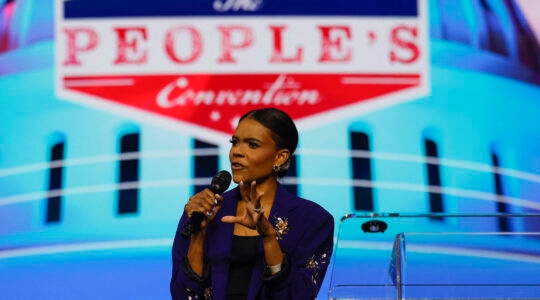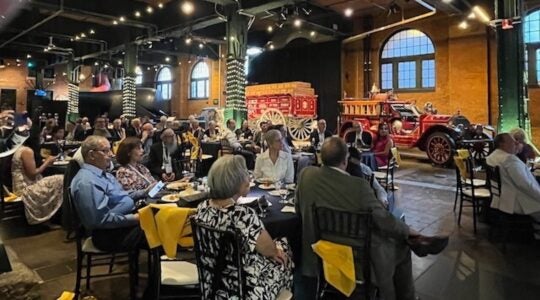In the course of reporting out a story I wrote last week about the Siyum HaShas, the celebration of the completion of the page-a-day Talmud study known as the Daf Yomi, I had an illuminating conversation about Reform Judaism’s take on the Talmud with Rabbi Daniel Freelander, senior vice president of the Union for Reform Judaism.
While I only had room in the story for a couple of lines from my interview with Freelander (the president of the URJ, Rabbi Rick Jacobs, was unavailable, I was told, and Freelander was assigned to speak to me in his place), I thought this would be a good place to give a fuller accounting of what Freelander had to say about Reform Jewry’s view of the Talmud. Here’s what he told me (these are exact quotes, except for my brackets, and paragraph breaks represent unrecorded discussion in between):
Text study is very important to us, but we focus on the Ur-text, on Torah in particular. That’s an interesting contrast between Reform and Orthodox. Talmud, Oral Law, is not our core text…
We’re aggressively pushing Torah and Tanakh study; we’re not aggressive at a North American level of pushing Talmud study. Talmud study remains important, but it’s not as central, certainly doesn’t rise anywhere to the level of a daily study encouragement for us.
[It’s part of] how Reform Judaism looks at rabbinic law… We see ourselves as successors reclaiming the core Torah text.
The rabbis of today and of yesteryear are of equal authority. The amoraim [rabbinic sages quoted in the Talmud] do not get special consideration. Contemporary commentary is equally as interesting and holy, if you will.
I asked Freelander where Reform contemporary commentary appears. He told me that contemporary responsa literature is published online and in libraries, and that the movement publishes some each week in the form of contemporary liturgy and contemporary Jewish thought. He said people submit questions via a listserv to the Central Conference of American Rabbis — the movement’s rabbinic arm — and the CCAR’s response committee answers, publishing the responses on the web. He went on:
We’re creating new sacred texts. Only time determines what the Jews will value for the long term… We’re not assigning Divine weight [to Talmudic rulings]. They don’t carry more weight than contemporary Jewish philosophy… Oral Law we do not find to be binding.
I asked Freelander whether Reform Jews should study the Talmud at all. He said:
It’s among the package of literature that educated Jews need to study. [But] it doesn’t have the same status to us as Torah does… Reform congregations do have Talmud groups. And we also send out every day a different study text to 20,000 folks. We have a Mishnah day, a minhag [custom] day…
I asked if there was a place for Reform Jews at the Siyum HaShas event at MetLife Stadium. He said:
It’s not our kind of an event. It presupposes how Talmud functions in your life and your community. That’s not a shared value across the Jewish community… A couple of weekly Talmud classes I know of don’t know about this event.
I asked him if Reform Talmud study groups use the ArtScroll translation of the Talmud for help in studying the complex Aramaic text. He said:
ArtScroll use is limited in Reform groups because it has a particular Jewish lens.
JTA has documented Jewish history in real-time for over a century. Keep our journalism strong by joining us in supporting independent, award-winning reporting.




